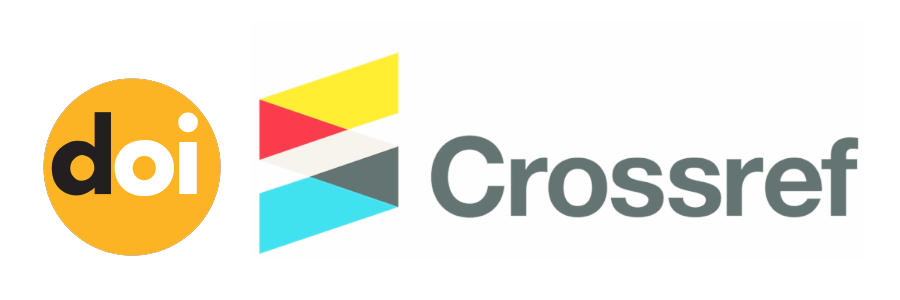Newer Approaches Cancer Treatment
DOI:
https://doi.org/10.55677/IJCSMR/V5I5-01/2025Keywords:
cancer, Chemotherapy, immunotherapy, combination therapy , cancer vaccine , molecular therapyAbstract
Cancer therapy is entering a transformational age based on the rapid advancement of molecular biology, genomics, immunology, and biotechnology. Traditional therapies remain strong and essential (chemotherapy, radiation, and surgery), but patients are offered new and redefined therapies in respects to innovative, personalized treatment strategies and/or combinations . Immunotherapy is one of the most innovative therapies available, rooted in the principle that we are able to harness the patient's own immune system to identify and destroy cancer cells. All forms of immunotherapy, including immune checkpoint inhibitors, CAR T cells, and cancer vaccines have produced unprecedented results in select malignancies; specifically, durable responses to therapy when options were scarce.
Another equally meaningful form of therapy is targeted therapies that are based on the detection of genetic and molecular alterations in the tumor. Targeted therapies have been designed to block cancer specific pathways and are enhanced based on the patient's tumor profile to provide a targeted intervention. Finally, gene editing technologies such as CRISPR-Cas9 hold the rare potential of correcting a genetic mutation where it occurs as opposed to simply managing the problems arising from the mutation as described in the previous sections.
The advancements in nanomedicine are also changing the face of drug delivery – allowing drugs to be delivered directly to the tumor, increasing drug efficacy and reducing systemic adverse effects. AI (artificial intelligence) and machine-learning now being included in existing workflows in oncology to allow for more accurate, faster detection of cancer, risk prediction, and treatment selection than traditional methods.
This paradigm of these novel therapies not only provide better survival chances and enhanced quality of life for many affected patients but are fundamentally changing the approach to cancer care more broadly: from a type of treatment that considers cancer as general disease, to one that considers cancer as unique and an individual type process. The purpose of this article is to detail the most recent approaches to cancer treatment, describing the mechanisms, clinical approach, and future promises in the ongoing fight against cancer.
References
1. World Health Organization (WHO)
WHO provides global cancer statistics, including data on cancer incidence, mortality, and survival rates across countries. They have a comprehensive cancer database that is updated regularly.
* World Health Organization, "Cancer," WHO Cancer Data
2. American Cancer Society (ACS)
The ACS offers detailed cancer statistics, including survival rates, mortality rates, and the effectiveness of various treatments across different cancer types in the United States.
o American Cancer Society, "Cancer Facts & Figures 2020," ACS
3. Cancer Research UK
This site provides data on survival rates, mortality rates, and cancer statistics for the United Kingdom, as well as insights into cancer treatment advancements, including immunotherapy and molecular therapies.
o Cancer Research UK, "Cancer Statistics," Cancer Research UK
4. National Cancer Institute (NCI)
NCI's SEER program offers extensive data on cancer survival rates and mortality in the United States, including detailed information on survival rates by cancer type.
o National Cancer Institute, "Cancer Stat Facts," NCI SEER
5. European Cancer Information System (ECIS)
ECIS provides detailed data on cancer statistics and trends across European countries, including survival rates and mortality data for various cancers.
o European Commission, "European Cancer Information System," ECIS
6. Global Cancer Observatory (GCO)
Managed by the International Agency for Research on Cancer (IARC), the GCO provides global cancer data, including cancer incidence, mortality, and survival statistics for countries worldwide.
o International Agency for Research on Cancer, "Global Cancer Observatory," GCO
7. Journal of Clinical Oncology (JCO)
JCO publishes research articles and clinical trials related to cancer treatment, including survival rates and outcomes for treatments like immunotherapy, gene therapy, and molecular therapies.
o Journal of Clinical Oncology, "Immunotherapy in Cancer," JCO
8. The Lancet Oncology
The Lancet Oncology features studies on cancer treatment, including the latest advances in immunotherapy, gene therapy, and personalized medicine.
o The Lancet Oncology, "Cancer Treatment and Survival," The Lancet Oncology
9. Cancer Treatment Centers of America (CTCA)
CTCA provides detailed reports on cancer treatment outcomes, particularly in the United States, including insights into immunotherapy and radiation therapy options.
o Cancer Treatment Centers of America, "Cancer Treatment and Success Rates," CTCA
10. PrognosTech - Prognostics and Technology in Cancer Therapy
This resource discusses the prognostic outcomes of cancer patients based on the latest treatments and therapies worldwide.
Downloads
Published
Issue
Section
License
Copyright (c) 2025 International Journal of Clinical Science and Medical Research

This work is licensed under a Creative Commons Attribution 4.0 International License.











